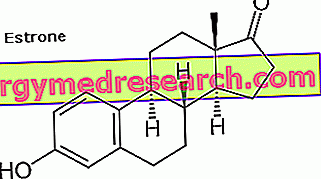LIVIN ® is a drug based on ranitidine hydrochloride
THERAPEUTIC GROUP: Antacids, antiemetics and peptic antiulcer - H2 antagonist
IndicationsAction mechanismStudies and clinical effectiveness Usage and dosage instructionsWarnings Pregnancy and lactationInteractionsContraindicationsUndesirable effects
Indications LIVIN ® - Ranitidine
LIVIN ® is indicated in the treatment of all pathologies sustained by an increased gastric secretion such as duodenal ulcer, benign gastric ulcer, recurrent ulcer, reflux esophagitis, gastritis, duodenitis and Zollinger-Ellison syndrome.
Mechanism of action LIVIN ® - Ranitidine
LIVIN ® is a medicinal product based on Ranitidine, a histamine H2 receptor antagonist widely used in the clinical setting for the treatment of gastric hypersecretion disorders.
Its marked therapeutic activity is essentially due to the ability to bind and inhibit histamine H2 receptors, expressed mainly by the parietal cells of the gastric mucosa, and partly responsible for the chloridropeptic secretion both at rest and following stimulation induced by food or gastrin .
This therapy in fact results in the reduction of the volume of gastric juice, in the reduction of acid secretion and in the consequent control of pepsin secretion, thus protecting the gastric mucosa from the inflammatory stimulus induced by hypersecretion.
The good pharmacokinetic properties of Ranitidine also allow it to be taken orally, with a very modest hepatic metabolism and the consequent elimination of the drug mainly through the kidneys by glomerular filtration and active tubular secretion.
Studies carried out and clinical efficacy
THE USE OF RANITIDIN IN PEDIATRIC AGE
Br J Clin Pharmacol. 2013 May; 75 (5): 1265-76.
Recent study, which considering the risks associated with neonatal therapy with ranitidine, but at the same time the need for its use in certain cases, defines personalized therapeutic protocols based not only on the weight of the newborn but also on the risk of developing serious clinical conditions such as heart failure.
THE PROFILACTIC ACTION OF RANITIDIN
Saudi J Anaesth. 2011 Jan; 5 (1): 67-72. doi: 10.4103 / 1658-354X.76508.
Interesting clinical trial that demonstrates how Ranitidine may be more effective than pantoprazole in reducing the acidity of gastric pH, thus controlling the frequency of pneumopathies ab ingestis especially in the post-operative phases.
RANITIDINE AND BLEEDING BY GASTRIC ULCER
Aliment Pharmacol Ther. 2009 Mar 1; 29 (5): 497-507. doi: 10.1111 / j.1365-2036.2008.03904.x. Epub 2008 Nov 27.
Study demonstrating the good efficacy of Ranitidine, similar to that observed for pantoprazole, in reducing the risk of re-bleeding in patients with gastric ulcer.
Method of use and dosage
LIVIN ®
Tablets for oral use 150 - 300 mg of Ranitidine Hydrochloride.
The therapeutic scheme envisaged for the use of LIVIN ®, should be defined by your doctor based on some characteristics of the patient such as:
- Age and general health condition;
- Severity of the existing clinical picture;
- Degree of renal and hepatic function;
- Therapeutic goals.
In order to reduce the potential side effects related to the oral intake of Ranitidine it is recommended to take the drug preferably on a full stomach.
Warnings LIVIN ® - Ranitidine
The use of LIVIN ® must necessarily be preceded by a specialist medical examination aimed not only at assessing the prescriptive appropriateness in terms of cost / benefit ratio, but also at assessing the possible presence of pathological situations, such as malignant diseases of the stomach, whose symptomatology could be masked by Ranitidine, thus delaying the moment of a fundamental diagnosis.
Particular caution in the administration of LIVIN ® should also be required for patients suffering from liver and kidney diseases, in which the pharmacokinetic characteristics of Ranitidine are potentially compromised to such an extent as to significantly increase the risk of adverse reactions.
It would also be advisable to request the supervision of your doctor during the entire therapeutic process.
It is recommended to keep the medicine out of the reach of children.
PREGNANCY AND BREASTFEEDING
The ability of Ranitidine to cross the placental barrier and the breast filter combined with the absence of studies capable of fully characterizing the safety profile of the active principle for fetal health, generally extends the aforementioned contraindications to the use of LIVIN ® also to pregnancy and subsequent breastfeeding period.
Interactions
The scientific evidence in the literature shows that in order to avoid unpleasant side effects, the patient receiving LIVIN ® should pay particular attention to the simultaneous intake of:
- Antacids, given their ability to reduce intestinal absorption of ranitidine;
- Diazepam, propanolol, theophylline and lidocaine, whose metabolism could be influenced by the inducing action on the cytochromial systems of Ranitidine;
- Drugs eliminated via the kidney, whose elimination kinetics could be further enhanced by Ranitidine, with a consequent reduction of potential therapeutic effects.
Contraindications LIVIN ® - Ranitidine
The use of LIVIN ® is contraindicated in case of hypersensitivity to the active ingredient or to one of its excipients or to other structurally related molecules.
Undesirable effects - Side effects
The use of LIVIN ®, especially when prolonged over time, could cause minor side effects such as constipation, nausea, vomiting, diarrhea and abdominal pain with a certain frequency.
Fortunately, the clinically relevant adverse reactions characterized by alterations affecting the nervous system and hypersensitivity reactions to the active ingredient are rarer.
Note
LIVIN ® is a prescription-only drug.



